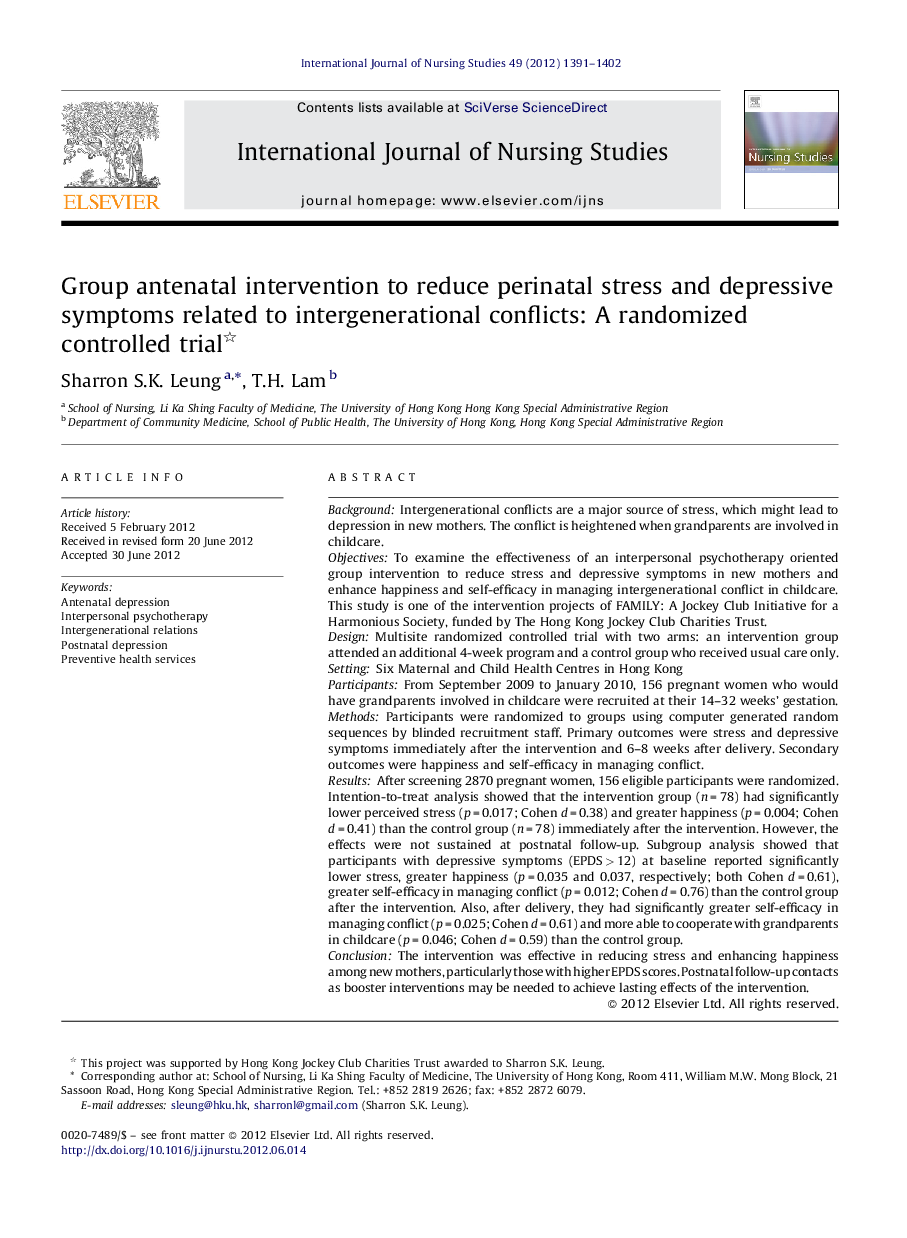| کد مقاله | کد نشریه | سال انتشار | مقاله انگلیسی | نسخه تمام متن |
|---|---|---|---|---|
| 1076502 | 1486554 | 2012 | 12 صفحه PDF | دانلود رایگان |

BackgroundIntergenerational conflicts are a major source of stress, which might lead to depression in new mothers. The conflict is heightened when grandparents are involved in childcare.ObjectivesTo examine the effectiveness of an interpersonal psychotherapy oriented group intervention to reduce stress and depressive symptoms in new mothers and enhance happiness and self-efficacy in managing intergenerational conflict in childcare. This study is one of the intervention projects of FAMILY: A Jockey Club Initiative for a Harmonious Society, funded by The Hong Kong Jockey Club Charities Trust.DesignMultisite randomized controlled trial with two arms: an intervention group attended an additional 4-week program and a control group who received usual care only.SettingSix Maternal and Child Health Centres in Hong KongParticipantsFrom September 2009 to January 2010, 156 pregnant women who would have grandparents involved in childcare were recruited at their 14–32 weeks’ gestation.MethodsParticipants were randomized to groups using computer generated random sequences by blinded recruitment staff. Primary outcomes were stress and depressive symptoms immediately after the intervention and 6–8 weeks after delivery. Secondary outcomes were happiness and self-efficacy in managing conflict.ResultsAfter screening 2870 pregnant women, 156 eligible participants were randomized. Intention-to-treat analysis showed that the intervention group (n = 78) had significantly lower perceived stress (p = 0.017; Cohen d = 0.38) and greater happiness (p = 0.004; Cohen d = 0.41) than the control group (n = 78) immediately after the intervention. However, the effects were not sustained at postnatal follow-up. Subgroup analysis showed that participants with depressive symptoms (EPDS > 12) at baseline reported significantly lower stress, greater happiness (p = 0.035 and 0.037, respectively; both Cohen d = 0.61), greater self-efficacy in managing conflict (p = 0.012; Cohen d = 0.76) than the control group after the intervention. Also, after delivery, they had significantly greater self-efficacy in managing conflict (p = 0.025; Cohen d = 0.61) and more able to cooperate with grandparents in childcare (p = 0.046; Cohen d = 0.59) than the control group.ConclusionThe intervention was effective in reducing stress and enhancing happiness among new mothers, particularly those with higher EPDS scores. Postnatal follow-up contacts as booster interventions may be needed to achieve lasting effects of the intervention.
Journal: International Journal of Nursing Studies - Volume 49, Issue 11, November 2012, Pages 1391–1402